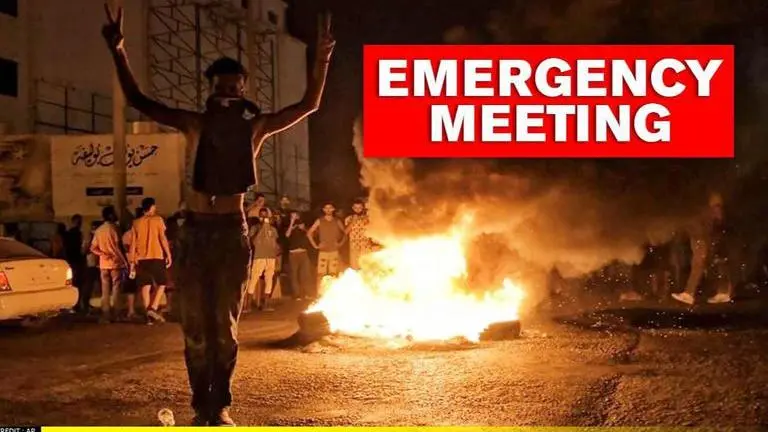Updated 13 September 2020 at 09:04 IST
Libya's eastern side witnesses rare wave of protests, parliament calls emergency meeting
Libya's parliament convened an emergency meeting on Saturday, September 12 to address a rare wave of protests on the eastern side of the nation.
- World News
- 2 min read

Libya's parliament convened an emergency meeting on Saturday, September 12 to address a rare wave of protests on the eastern side of the nation fueled by the worsening living conditions in the war-torn region. As per reports, the protests taking place in the east, which is controlled by the UN-back government are similar to the ones taking place on the western side, which is controlled the Haftar forces.
Rare protest in east Libya
As per reports, due to the area’s crippling electricity shortages, hundreds of Libyan youth have taken to the streets of Benghazi and other eastern cities. Protestors have reportedly set piles of tires ablaze and have also begun blocking traffic while chanting lyrics from popular songs that speak out against government corruption in the country.
The demonstrations in Benghazi, and the other eastern cities, are reported to mirror the protests in the Libyan capital of Tripoli and other western cities -- one major difference being the protests in the eastern side do not appear to be centrally organised as is the case for the western side. Moreover, the protests in the east were soon forcibly dispersed by authorities.
Advertisement
According to reports, during the emergency meeting, the House of Representatives attempted to deflect the blame for the poor living conditions on Tripoli-based Central bank and alleged that it had purposefully neglected the east. In an effort to placate the protestors the House of Representatives promised to investigate “suspected corruption” and expedite municipal elections.
Advertisement
Libya has been in the midst of a violent civil war since 2014 and as a result, has been essentially bifurcated into two autonomous regions, military commander Khalifa Hifter who is the commander-in-chief of the Libyan National Army rules the east and south backed by the United Arab Emirates, while an UN-supported government based in Tripoli controls the west.
Published By : Shubham Bose
Published On: 13 September 2020 at 09:04 IST
